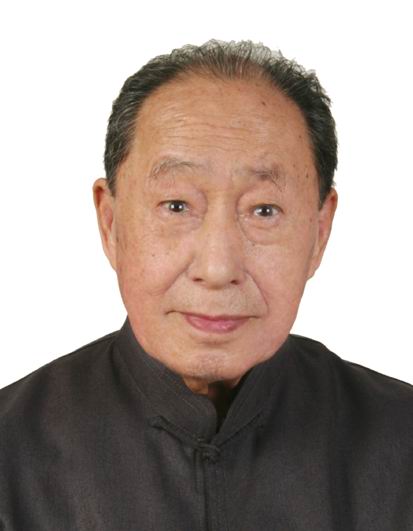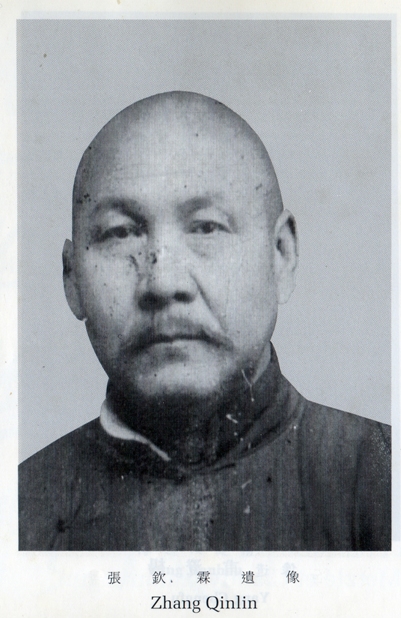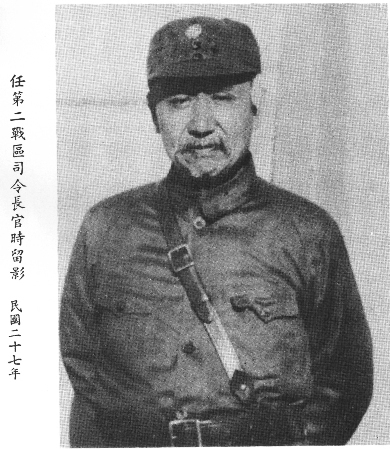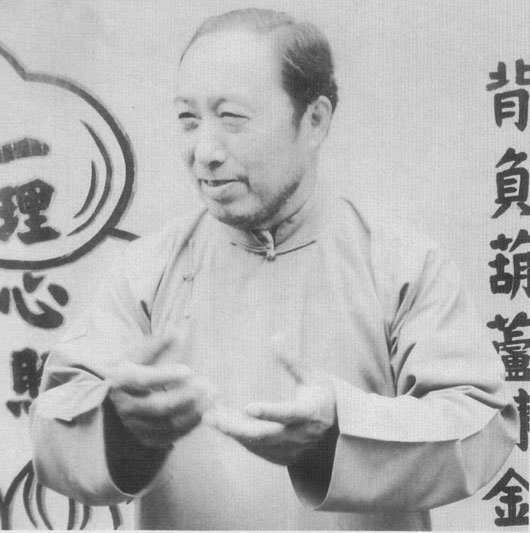

The Master of a Generation: A Short Biography of Wang Yen-nien (1914-2008)
English Translation Copyright © Yen-nien Daoguan. All rights reserved.
Wang
Yen-nien, 91 ans, Taipei 2005
Copyright
© Yen-nien Daoguan
After graduating as a second lieutenant
from the Shanxi Provincial Military Academy in 1937, Master Wang fought in the
Sino-Japanese War under Yan Xishan until Japan's defeat in 1945, serving
successively as platoon leader, company commander, battalion commander and
regiment colonel. Because he excelled in Japanese, Russian and American rifle
techniques, he spent part of the war teaching rifle skills at the Shanxi
Province Military Academy.
Copyright © Yen-nien Daoguan


In 1949, in the wake of the Chinese Civil War between the Communists and Nationalists, Wang left Zhang Qinlin and followed Yan Xishan (Premier and Minister of National Defense) and the national government to settle in Taiwan. A year later, in 1950, he began to teach Yangjia Michuan Taijiquan on land belonging to the present-day Grand Hotel and the site of the Shanxi Taiyuan 500 Martyrs Shrine, soon gathering a growing number of students about him.
In 1960, at the invitation of Mr. Chen Pan-ling, Wang Yen-nien became the joint initiator and chief instructor of Taiwan's first specialized taijiquan organization ever—the Chinese Taijiquan Club. Three years later, in 1963, Master Wang also became a consultant and head coach for the Taijiquan Academic Research Committee under the Sino-American Cultural & Economic Association (the director of which was Liang Han-tsao, while Han Zhensheng held the post of chairman.)
From 1966 to 1975, Wang Yen-nien served as executive director and chairman of the coaching committee of the Chinese Taijiquan Academic Research Society. (Again, it was Han Zhensheng who held the post of chairman.)
Beginning in 1975, he held various posts within the ROC National T'ai Chi Ch'uan Association (first chairman: Han Zhensheng), including that of vice director, chairman of the coaching committee and head referee. In December 1986, after the then chairman General Shi Jue passed away, Master Wang was elected the fifth chairman of the Association. In 1990, he retired from this post, but was made lifetime honorary chairman of the ROC National T'ai Chi Ch'uan Association (which has since been renamed as ROC National T'ai Chi Ch'uan Federation).

In 1989
he founded the European College for Yangjia Michuan Taijiquan Teachers,
and in 1992 the American Yangjia Michuan Taijiquan Association. In 1998, he
received the Chinese Martial Arts Award, a prize awarded by the Global Chinese
Cultural Awards.
In 2005, Wang established the ROC (Taiwan) National Yangjia Michuan Taijiquan Association, whose goal it is to perpetuate and spread the Yang family's hidden tradition of taijiquan. In 2006, the French Ministry of Sports awarded Master Wang Yen-nien a gold medal for his lifetime achievement and contribution to cultural enrichment in France.

Master
Wang Yen-nien actively taught Yangjia Michuan Taijiquan for 55 years, and for
two decades, from 1981 to 2001, he frequented Europe and the United States to
instruct students there. He continued to teach at his school in Taipei,
the Yen-nien Daoguan, until 2006, when he fell ill with kidney failure. Until
his death in 2008 he remained a spiritual and skillful guide for his
closest disciples and
students.
Wang
Yen-nien awarded gold medal by
French
government.
To preserve and pass on the true essence of the Yangjia Michuan Taijiquan School and uphold the reputation of "Yang-Without-Enemy," Master Wang resolved to publish guidebooks on the practice of the Yang family's hidden tradition so that it may be forever passed on to future generations. Mr. Wang was truly an internationally renowned Taijiquan Master with students all over the world. He exercised strict self-discipline, but showed leniency and understanding towards others, treating people kindly and with compassion. We can all learn from his exemplary style, which can be summed up with the phrase "do more, talk less."
